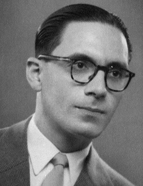

LFA also delves with great finesse into his political and administrative interpretation of royal absolutism, especially with regard to how it was lived and practised by D. João V. A paternalistic conception and practice, far more pragmatic than subordinated to a theoretical paradigm or to any legal law and doctrine that one might want to read over time. He did not even grant any worth to the polysynodism of some since the councils were mainly advisory. However, what happened with the Overseas Council needs to be somewhat nuanced. These were times when the courts did not even meet, nor were any public bodies consulted on the measures to be taken by the authorities. Although the exercise of central power in the final years of the kingdom was difficult to understand, with the K ing, Cardinal da Mota, Father Carbone and Alexandre de Gusmão present and acting at a time when the Secretaries of State (created in 1736) had yet to establish their powers.
An article on the Colony of Sacramento could not be absent from these loose pages: in this case , the author took advantage of his collaboration in Portugal no Mundo [ Portugal in the World] , directed by Luís de Albuquerque. These pages are meant to be representative of an academic life that was not only about research. LFA was also exemplary when it came to preparing lessons and indicating elements for students to work on. He always endeavoured to provide as much data as possible for consultation and work. And the studies on the New Colony naturally stand out. With the usual quality, although they were gradually perfected as the research progresse d and the documentary and bibliographical knowledge develop ed . And the admiration of Argentinians and Uruguayans took root. In 2006, the tribute paid to him in Montevideo took place in the very building of the Ministry of Foreign Affairs and in the presence of the Minister of Foreign Affairs. It was the acknowledgement that not only did Brazil consider him a remarkable researcher but also a teacher who gave them good historical foundations for a regional policy in the Plata region.
This work is financed by national funds through FCT - Foundation for Science and Technology, I.P, in the scope of the projects UIDB/04311/2020 and UIDP/04311/2020.
